Discover the newest superfood of the stars; kale is full of health benefits. Read more about kale, get some recipes, and learn about cautions.
“Every leaf of kale your chew adds another stem to your tree of life.” ~ Ancient Turkish Saying
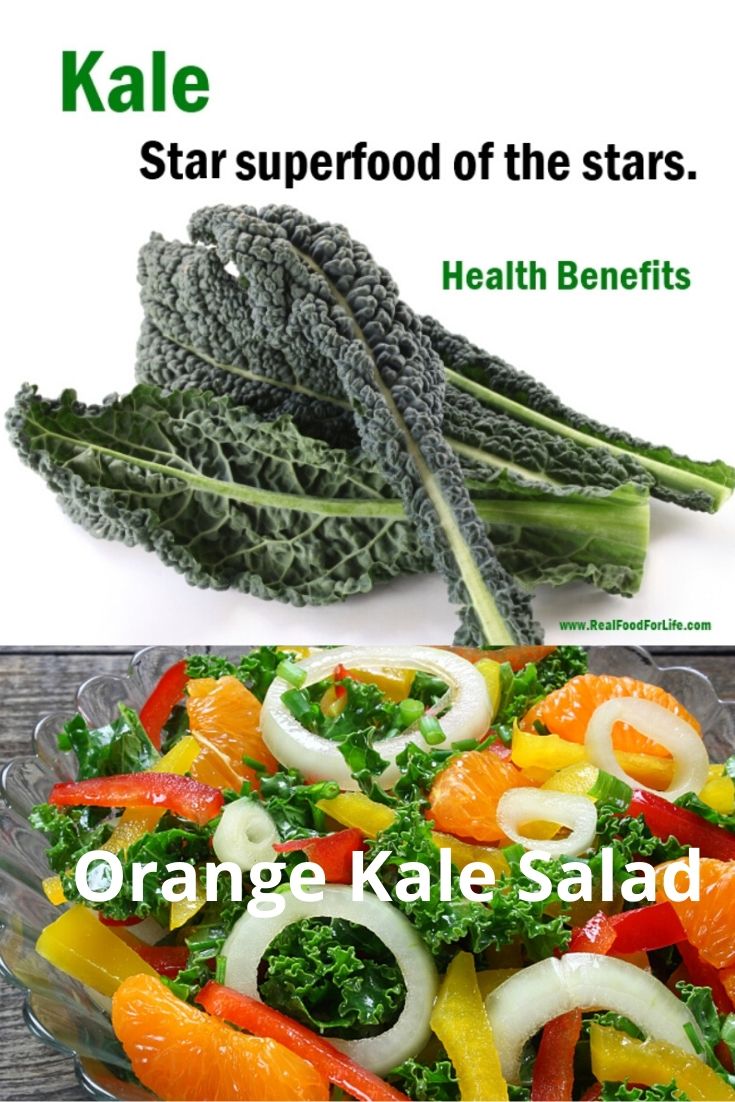
Kale was once called the ‘poor people’s food’ but now it’s the new trend. Celebrities like Angelina Jolie, Woody Harrelson, and Gwyneth Paltrow are all eating kale to feel better and keep the ‘sleek physique’ needed for stardom.
It is one of my top Superfoods!
8 Health Benefits of Kale
1. Can help lower cholesterol levels.
The fiber in kale binds bile acids and helps lower blood cholesterol levels and reduces the risk of heart disease. It’s best when kale is cooked instead of raw.
2. Kale is a detox food.
It’s filled with fiber and sulfur which are great for detoxifying your body and keeping your liver healthy.
3. Low in calories
A cup of chopped kale has only 33 calories. Eat lots as it is great for weight loss!
4. Great at fighting many cancers
Kale is rich in organosulfur compounds that are known to fight cancer, especially colon cancer.

5. Supports a healthy immune system.
Kale is full of sulforaphane which helps which nourishes the immune system.
6. Visual Benefits.
It is abundant in two carotenoids, lutein and zeaxanthin, which act like sunglass filters preventing damage to the eyes from excessive exposure to ultraviolet light.
7. Supports normal blood clotting, antioxidant activity, and bone health.
The high amount of Vitamin K is a kale health benefit that helps nourish those activities in the body healthy.
8. Great for helping digestion and elimination.
One of the reasons is that it is very high in fiber.
Too much vitamin K can cause problems for anyone taking anticoagulants such as warfarin because the high level of vitamin K may interfere with the drugs. Consult your doctor before adding kale to your diet if you are on this type of medication. Kale and Oxalates: It contains oxalates that interfere with the absorption of calcium. There is much controversy about this. Goitrogenic Food? Contrary to popular belief, the latest studies show that kale is not goitrogenic. In fact, most foods that are commonly called goitrogenic (kale, broccoli, and cauliflower), as well as soy-based foods, do not interfere with thyroid function in healthy persons even when they are consumed daily. Again this is controversial.
All greens are nutritious, but kale stands way above the rest. Kale has more iron than beef per calorie. Very high in Vitamin K, full of powerful antioxidants, and much more.
I cup of kale only has 33.5 calories but it is the other nutritional aspect of kale that makes it a superstar.
All greens are nutritious, but kale stands way above the rest with lots of health benefits.
- High in iron. Kale has more iron than beef per calorie.
- High in Vitamin K. A diet high in Vitamin K can help protect against various cancers.
- Full of powerful antioxidants. Antioxidants, such as carotenoids and flavonoids help protect against various cancers.
- High in Vitamin A which is great for your vision, and your skin as well as helping to prevent lung and oral cavity cancers.
- High in Vitamin C. Good for your immune system and your metabolism.
- Very high in calcium. Kale has more calcium than milk per calorie, which helps prevent bone loss and maintain a healthy metabolism.
- It contains lots of anti-oxidant and anti-inflammatory flavonols, such as quercetin that help defend your body from the stresses of modern life.
- Filled with many other nutrients and vitamins. (folic acid, vitamin B6, manganese, folate, alpha-lipoic acid, Glutathione potassium and magnesium) as well as those listed below.
- Over 45 different flavonoids in kale. Kaempferol and quercetin heading the list.

Kale Nutrition
Amounts per 1 cup, chopped (67g)
Total Calories 33.5 (140kJ) or 2%
Protein 2.2g
Total Carbohydrates 6.7
Dietary Fiber 1.3g
Vitamin A 10302 IU or 206%
Vitamin C 80.4mg
Vitamin K 547 mcg or 684%
Thiamin 5%
Riboflavin 5%
Niacin 3%
Vitamin B6 9%
Folate 5%
Pantothentic Acid 1%
Total Fat 1%
Calcium 90.5mg 9%
Iron 1.1mg 6%
Magnesium 22.8mg 6%
Phosphorus 37.5mg 4%
Potassium 299mg 9%
Sodium 28.8mg 1%
Zinc 0.3mg 2%
Copper 0.2mg 10%
Manganese 0.5mg 26%
Selenium 0.6mcg 1%
Water 56.6g
Source: Nutrition Data
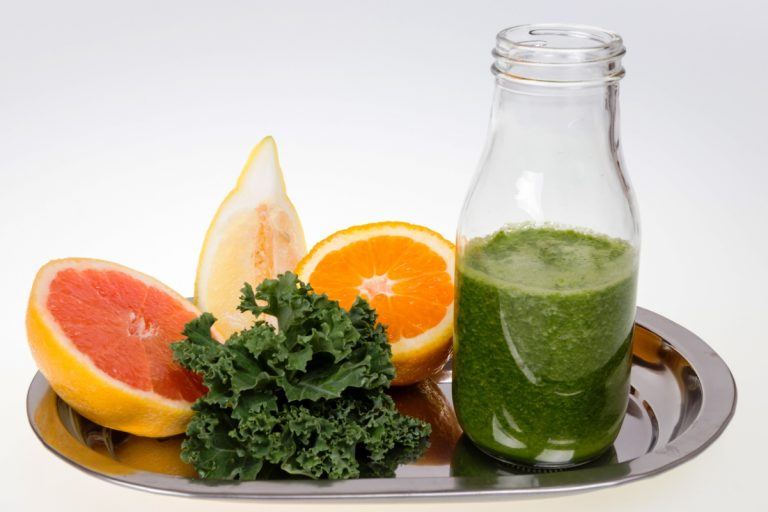
Kale Trivia
Did you know?
- There are at least 54 varieties of kale. If you would like to see the list, go to Cornell University.
- National Kale Day is celebrated on the first Wednesday of October.
- Kale plants continue to produce late into winter. It is the perfect green for seasonal eating in fall or winter.
- Kale needs a frost to become sweeter. The frost converts some of the plant’s starch into sugar.
- In Scotland, an invitation to “come to kale” was an invitation to dinner.
- An adult hippopotamus at Washington D.C.’s National Zoo eats 10 pounds of kale a day!
History of Kale
“Kale is one of the oldest forms of cabbage, originating in the eastern Mediterranean. Kale is thought to have been used as a food crop as early as 2000 B. C.” Laurie Hodges, Ph. D. Extension Specialist
- Kale originated in Asia Minor and by the 5th century B.C., the preference was for the larger leaf that developed into the vegetable we now know as kale.
- The plant was brought to Europe around 600 B.C. by groups of Celtic wanderers. Early historical records on the Romans called it Sabelline Cabbage.
- Kale was a staple crop in the Scottish Islands because of its hardiness; the Scots grew it in kale yards. Almost every house had a kale yard and preserved kale in barrels of salt.
- English settlers brought kale to the United States in the 17th century.
- Russian kale was introduced into Canada (and then into the U.S.) by Russian traders in the 19th century.
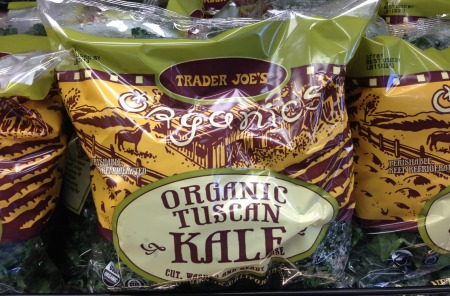
How to Buy and Store Kale For Health Benefits
- Always buy organic kale. When it is not grown organically it is grown with lots of chemicals making it one of the Dirty Dozen. The kale should be firm with fresh, with deeply colored leaves and hardy stems.
- Kale with smaller leaves will be more tender and have a milder flavour than the larger leaves.
- Put kale in a plastic storage bag removing as much of the air from the bag as possible. Keep in the refrigerator for 5 to 7 days. The longer it is stored, the more bitter its flavor becomes. Do not wash kale before storing because the water encourages spoilage.
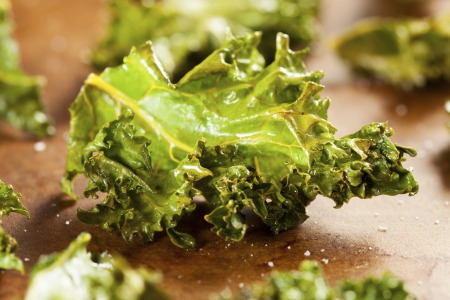
Tips For Eating or Cooking
- You can eat kale raw when it is young and tender – almost like lettuce.
- The kale you eat at the store will probably be mature which means it will probably be too tough and fibrous to digest easily.
- Blending mature kale will help but the easiest way is to cook it.
- Kale is so nutritious that even cooked kale is loaded with health benefits and vitamins and minerals.
- Many people enjoy kale chips. The health results will depend on the quality of kale and oils, plus the preparation methods.
Get Kale Health Benefits with these Recipes

Delicious Mandarin Orange Kale Salad – This is a very healthy and nutritious salad. The addition of the mandarin oranges makes it yummy.
Delicious Winter Grapefruit Green Smoothie – How about having a colourful grapefruit green smoothie for breakfast filled with nutritious greens, grapefruit, orange, and flax seeds? Being warm, it is great for the winter and also helps with weight loss. This nutritious smoothie is very filling too.
Steamed Winter Vegetables This is one of my easy ways to prepare vegetables. Perfect for fall and winter seasonal eating.
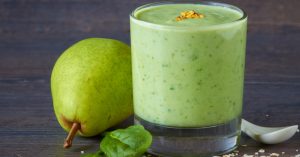
Pear Green Smoothie All ingredients are alkalizing! A great way to start your day with a very nutritious green smoothie.
KABOCHA SQUASH SOUP This is for sure a delicious soup and with some kale in it makes it even more nutritious.
Braised Kale – Adding garlic and other good ingredients to the kale makes it delicious.
100+ Superfoods
Learn more about some of the healthiest vegetarian foods you will always want to have in your pantry or growing on your deck.
READ: Superfoods – Over 100 of the Healthiest Foods You Should Have in Your Diet and learn more about the variety of Superfoods we think you should have in your diet.


We are just begining to learn more about the benefits of Kale . WE currently use it in our home made soups .
Thanks.
Bill
i highly dispute the part about kale, cabbage, etc NOT being goitrogenic. as someone with thyroid disease, i KNOW for a fact that i cannot eat any of them — no more broccoli, kale, cabbage, cauliflower, etc for me. if i do — i get very, very, sick, very, very quickly — like within minutes. and it seriously compromises my thyroid levels.
but i LOVE kale soup — and kale soup was my downfall — that’s how it was discovered that my thyroid was barely functioning.
i’m happy for all of those people who CAN eat kale and the other goitrogenic vegetables.
Thank you Annie for your input. I found the information on that fact interesting and wanted to be very open to it. I do have a bit of a Thyroid problem but always seem to get it under control without medication. What I do know is that all those veg except for Kale chips are not something I enjoy anymore and always think it is my body saying no to them because of the thyroid stuff because I used to like them all. That said I do not feel sick if I eat them.
I don’t have any comment
Thank you
I’ve been juicing kale and really enjoy it. However, your mentioning it as an immune booster gives me pause. I have been diagnosed with RA and am on immune suppressants. So should I stop juicing kale, or is it not that powerful.
I asked my doctor and he looked at me weirdly. Fun, huh?
Thank you so much for all you do to get healthy information out to everyone … especially to those of us trying to pass it on to others.
Carolyn Aird